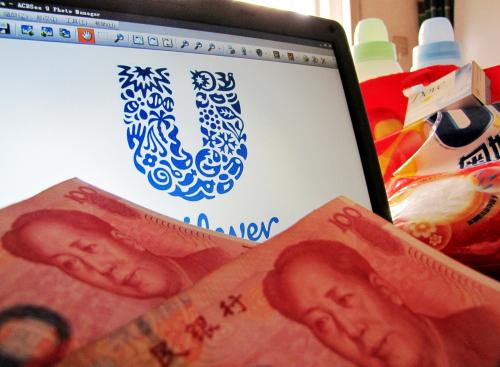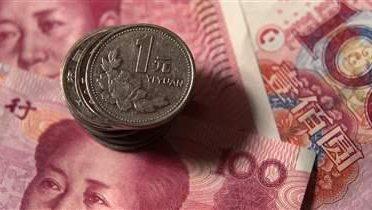This article draws on material from a recent Wall Street Journal op-ed by the author.
October 1 marks a symbolically momentous day in the annals of international finance. On that day, the International Monetary Fundy (IMF) will officially anoint the Chinese renminbi (RMB) as an elite global reserve currency. The RMB will join the select basket of currencies (currently comprised of the dollar, the euro, the Japanese yen, and the British pound sterling) that constitute the IMF’s artificial currency unit, the Special Drawing Rights. It seems clear the RMB is taking the world by storm and reshaping global finance.
China’s economy is now the second largest in the world. It accounts for about 15 percent of global GDP (at market exchange rates) and 12 percent of world trade. With China’s economy continuing to grow at a good clip, it seems reasonable to assert that the RMB is on its way to becoming a dominant reserve currency, perhaps even rivaling the dollar.
In fact, as I argue in my new book “Gaining Currency: The Rise of the Renminbi” and a recent piece in The Wall Street Journal, this hype is overblown. While the trajectory of the RMB’s rise is remarkable, prognostications about the currency’s inevitable rise to dominance and fears about the dollar’s decline are likely to be proven wrong. But it is equally the case that doomsday prognostications about the RMB falling sharply in value and receding in global prominence are likely to prove incorrect. The outcome ultimately hinges on how seriously the Chinese government follows through on its ostensible commitment to financial market as well as broader economic liberalization and reforms.
The RMB has in fact come a long way in just a few years since China started easing restrictions on cross-border inflows and outflows of financial capital. The currency has come to play a significant role in the denomination and settlement of cross-border trade and financial transactions. It is now among the top five or six payment currencies in the world.
Remarkably, the RMB has also already become a de facto reserve currency even though China has neither an open capital account nor a flexible exchange rate. Many central banks around the world are gradually acquiring at least a modest amount of RMB assets for their foreign exchange reserve portfolios. Some 34 central banks around the world have signed bilateral local currency swap arrangements with China’s central bank.
The key challenge that China now faces in promoting its currency’s international role is that it needs well-developed and better-regulated financial markets. Foreign investors need to be able to acquire and hold high-quality financial assets denominated in yuan. But these markets are not very liquid and suffer from weak and uneven regulatory oversight.
The government is taking some of the necessary steps, trying to develop and strengthen its corporate and government bond markets, while also giving foreign investors easier access to such instruments. Foreign investors remain unpersuaded, however. They remain skeptical about whether the government means it, for instance, when it says that foreign investors can now more easily sell and repatriate their investments.
The only way to convince investors is to match words and commitments with actions on the ground, and to make further progress on reforms. If China plays its cards right by adopting reforms that put its economy and financial markets on the right track, the RMB could one day conceivably become a significant reserve currency, rivaling even such reserve currencies as the pound sterling and the Japanese yen.
Even with such reforms, however, the RMB will soon reach its limits. While the Chinese leadership is pursuing financial liberalization and limited market-oriented economic reforms, it has unequivocally repudiated political, legal, and institutional reforms. Chinese President Xi Jinping’s government has, if anything, rolled back freedom of expression, the rule of law, and the independence of key institutions from government interference.
China might have rising economic clout but, without these broader reforms, it will never gain the trust of foreign investors. Such trust is crucial for a currency to be seen as a “safe haven” currency to which investors turn for safekeeping of their funds during crises. In short, while the RMB has the potential to become a significant reserve currency, it will not attain “safe haven” status in the absence of far-reaching reforms to China’s institutional and political structure.
Still, the RMB’s rise to international prominence will change international finance, and even China itself, in many ways. China has adopted a unique playbook for promoting the RMB while trying to only gradually free up capital flows and the exchange rate. This process has set in motion a set of forces that will be difficult to control and trying to roll back or halt these reforms could expose the Chinese economy to even greater risks. For instance, the Chinese central bank’s attempt in August 2015 to free up the exchange rate only in a very modest way simply created more turmoil in currency markets.
Over the next few years, the RMB’s rising importance in international finance could well serve as a catalyst for domestic reforms and also help in improving the stability of the international financial system. The RMB will continue to rise in global finance, but don’t expect it to rule.







Commentary
The Renminbi rises, but is no match for the dollar
September 30, 2016